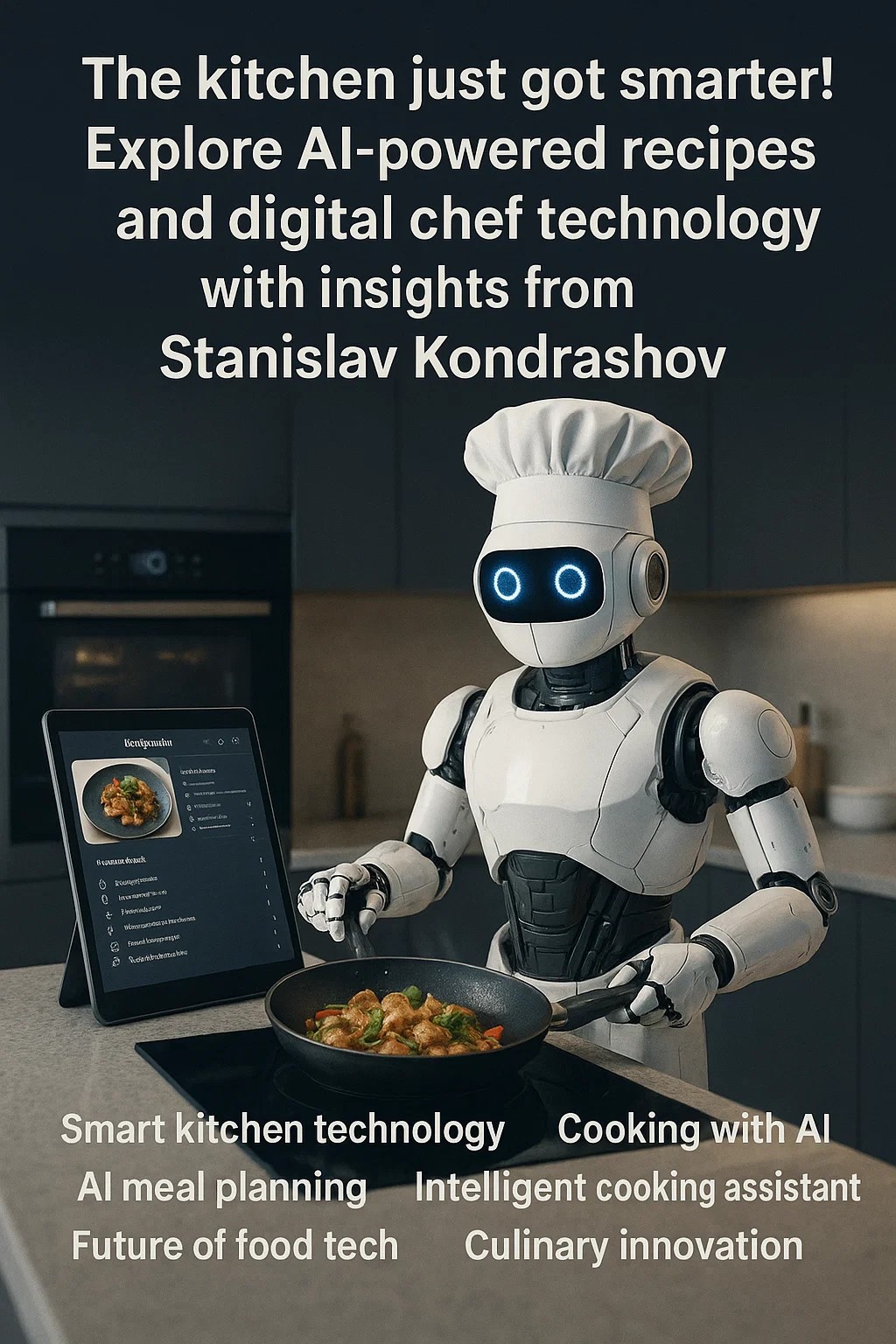food

May 14,2025 • 2 min read
The Digital Chef: Exploring AI-Powered Recipes and Kitchen Assistants

The phrase “digital chef” may sound futuristic, but it’s already part of daily life in kitchens around the world. Not in the form of robots flipping pancakes or drones garnishing dishes—but through algorithms, data, and quiet intelligence working behind the scenes.
Whether it’s a smart speaker walking you through a risotto or a recipe generator crafting dinner out of leftovers, AI is changing what it means to cook—and who (or what) does the heavy lifting.
Recipe Creation Gets a Digital Upgrade
Not Just Following—Generating
AI isn’t just about finding recipes—it’s writing them.
Platforms trained on thousands of existing dishes can now generate new recipes from scratch. You enter a few inputs: dietary preferences, number of servings, available ingredients. The system then builds a custom recipe, often in seconds.
These recipes can be surprisingly creative. Unexpected flavor pairings. Global influences. And always balanced for nutrition and structure.
Where Tech Meets Taste
Is It Any Good?
This is the big question. Are AI-generated recipes, actually tasty?
Surprisingly, yes. Not always gourmet, but often clever and efficient. Especially when human cooks apply a little flair to polish the output. That’s where the magic happens—humans with intuition, machines with data.
The “digital chef” doesn’t replace the cook. It supports them. Fills in gaps. Sparks ideas. Handles the math so you can focus on flavor.
Final Thought
The digital chef isn’t here to steal your apron. It’s here to set the timer, preheat the oven, and maybe recommend a wine pairing you hadn’t considered.
AI-powered cooking isn’t the end of hands-on meals. It’s a new beginning—faster, smarter, but still deeply human.
The code doesn’t cook. But it makes sure you can.
Richard Francis Details
User Profile
- Full name
- Richard Francis
- Email address
- mtlcontrol2@gmail.com
- Join Date
- 2025-05-14
- State
- City
- Pincode
- Address
- Follow us on Facebook
- Follow us on Twitter
- Website Name
- Bio